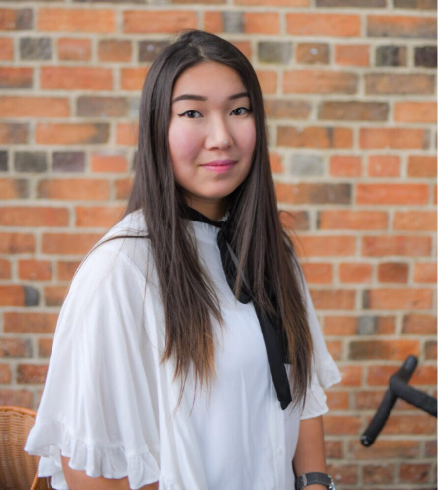The Knowledge Economy
By Seth Robinson
Students from around the world travel to Australia for their studies. When they return to their home countries, they take with them a wealth of exportable knowledge, technical skills, and expertise, all of these are Australian grown resources, which can be invested internationally.
Madina Sagidullina is from Kazakhstan. She laughs when she tells me that, seemingly a little surprised that I know where it is.
“When I say I’m from Kazakhstan most people are like ‘where? Pakistan?’ I’ve gotten used to explaining where it is – central Asia, near Russia and China – it’s also quite a young country, we’ve been independent for about 30 years, so we’re still forming our new identity.”

Madina speaks four languages. Kazakhstan has two official languages, Russian and Kazakh, so most Kazakhstani people are at least bi-lingual. However, Madina’s additional mastery of English and Turkish reflect her global outlook, one that comes from time spent travelling, and working in the education sector.
“I started working in education for a company called Pifagor. We focused on training for gifted children. There was also a special focus on girls learning STEM (Science, Technology, Engineering and Maths). A lot of those children have now gone on to study around the world. We actually had a few who represented Kazakhstan at the Olympics!”
“I love research, so I got very invested in that as I was making my decision. When you compare Australia and Kazakhstan, it’s easy to think they’re completely different, but if you go a little deeper, there are some similarities. They’re both geographically really big countries, Australia is ranked sixth and Kazakhstan is ninth. Their populations aren’t that different either, Australia is 25 million, and Kazakhstan has 17, so it’s a similar concentration of people. I also read about the work-life balance here, and Australia has some of the most beautiful cities in the world. Australia is doing well, and I wanted to learn how they’re doing it.” she says. “Then, of course, there’s the University of Melbourne, which is number 1 in Australia, so as soon as I found out about it I really wanted to go there.”
Madina enrolled in the Master of Management (Human Resources), a course that allowed her the opportunities to connect with academics and her peers, and begin building a network.
The Master of Management (Human Resources) provides specialist training in human resource management, while also covering a broad spectrum of management activities, including people management, motivating and rewarding employees, dealing with stakeholders, data analysis and HR policy development.
Find out more about the Master of Management (Human Resources) here.
She went on to intern with the (Australian Human Resources Institute (AHRI), and take part in the Global Business Practicum.
“I did a work placement for AHRI working in Human Resources for Europcar, at their Australia and New Zealand headquarters. It was an excellent opportunity to become familiar with the Australian market, to learn about the work culture, and make some connections. Later on, I did the Global Business Practicum in Malaysia, at a company called TCI, which produces power cables, and related services. That was an incredible opportunity to see things from an international perspective, and to gain an understanding of a manufacturing and automation based business, as opposed to being humancentric.”
Now, in her final semester, Madina is preparing for a return to Kazakhstan upon her graduation, to take the skills and knowledge she has gained over the course of her studies back home.
“The Master of Management (Human Resources) gave me a lot of insight about the field, as well as work experience, and even my personal life. It made me realise that the greatest resource a company can have is people. People are never truly redundant, they can be retrained. When they understand a company’s culture, they grow, and they evolve with the company. Kazakhstan is still growing. Now that I know these things, I feel like I can go home and transfer my knowledge and experience, to make a positive change.”
Melbourne Business School holds information sessions within Australia and internationally throughout the year. If you're interested in finding out more about MBS programs, click here to see when we will be in a city near you.